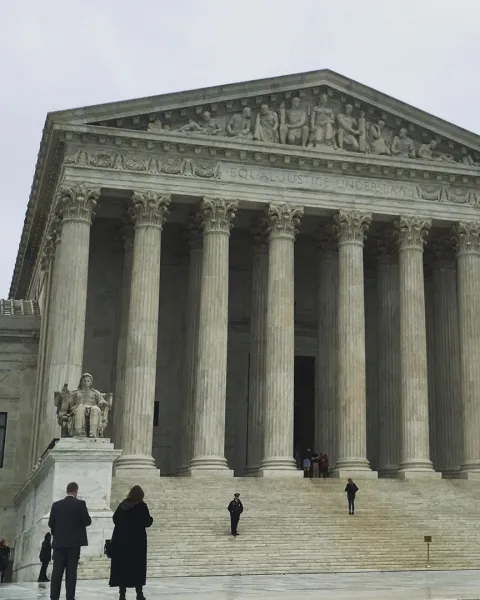The U.S. Supreme Court has declined to settle the circuit split on whether its 2017 decision in Bristol-Myers Squibb Co. v. Superior Court of Cal. applies to collective actions brought under the Fair Labor Standards Act (FLSA), 29 U.S.C. § 216(b). In Bristol-Myers, the justices held that a federal court could not exercise specific personal jurisdiction over nonresident plaintiffs’ claims against a nonresident company.
The justices denied a petition to review a Third Circuit decision, Fischer v. Federal Express Corp., 42 F.4th 366 (2022). In Fischer, the Third Circuit upheld a district court’s refusal to allow out-of-state plaintiffs to join an overtime collective action brought by a former Federal Express security specialist in a federal court in Pennsylvania. The district court, following Bristol-Myers, found that it lacked personal jurisdiction over the claims of former employees who worked for Federal Express outside of Pennsylvania.
The Third Circuit affirmed the judgment on interlocutory appeal. Under Bristol-Myers, “all opt-in plaintiffs must establish specific personal jurisdiction over the defendant with respect to their individual claims,” the Third Circuit held, and the opt-in plaintiffs could not do so in this case because they did not work for the defendant in Pennsylvania.
Majority View: Bristol-Myers Applies to Collective Actions
In Bristol-Myers Squibb Co. v. Superior Court of Cal., 137 S. Ct. 1773, a mass tort action, the Supreme Court limited the scope of federal court jurisdiction over out-of-state claims. Following the decision, federal courts have conflicted on whether the landmark opinion applies to collective actions brought under the FLSA. To date, four circuit courts of appeal have considered the issue.
In Fischer, the Third Circuit joined the Sixth and Eighth Circuits in concluding that Bristol-Myers applies to FLSA collective actions, and therefore, federal courts may not exercise jurisdiction over claims of out-of-state opt-in plaintiffs in putative collective actions, other than in the states in which the employer has its principal place of business or is incorporated.
A divided First Circuit panel, in an outlier decision, has held that out-of-state plaintiffs may join an FLSA collective action without regard to the Bristol-Myers jurisdictional issue.
Takeaway
The Supreme Court’s decision to deny review (rejecting its third opportunity to resolve the matter) leaves the circuit split intact. Employers are left to navigate the conflicting circuit court decisions and to await the eventual decisions from the nine other circuit courts that have not weighed in.
The trend favors defendants seeking to rein in nationwide collective actions. In the circuits that apply Bristol-Myers to collective actions, it is harder for opt-in plaintiffs to join FLSA collective actions in federal courts outside of their home states. Employers in these circuits must use this to their advantage and strategically defend collective actions by limiting the plaintiffs that may join the collective.
However, employers will still be on the hook for collective actions brought against them in states in which the employer has its principal place of business, is incorporated, or is subject to general jurisdiction. Given the ongoing circuit split, the trend of plaintiffs filing FLSA collective actions in the state where a company is headquartered is likely to continue.
Please contact a Jackson Lewis attorney if you have questions about the impact of Bristol-Myers Squibb on collective and class action litigation.
© Jackson Lewis P.C. This material is provided for informational purposes only. It is not intended to constitute legal advice nor does it create a client-lawyer relationship between Jackson Lewis and any recipient. Recipients should consult with counsel before taking any actions based on the information contained within this material. This material may be considered attorney advertising in some jurisdictions. Prior results do not guarantee a similar outcome.
Focused on employment and labor law since 1958, Jackson Lewis P.C.’s 1,000+ attorneys located in major cities nationwide consistently identify and respond to new ways workplace law intersects business. We help employers develop proactive strategies, strong policies and business-oriented solutions to cultivate high-functioning workforces that are engaged and stable, and share our clients’ goals to emphasize belonging and respect for the contributions of every employee. For more information, visit https://www.jacksonlewis.com.



